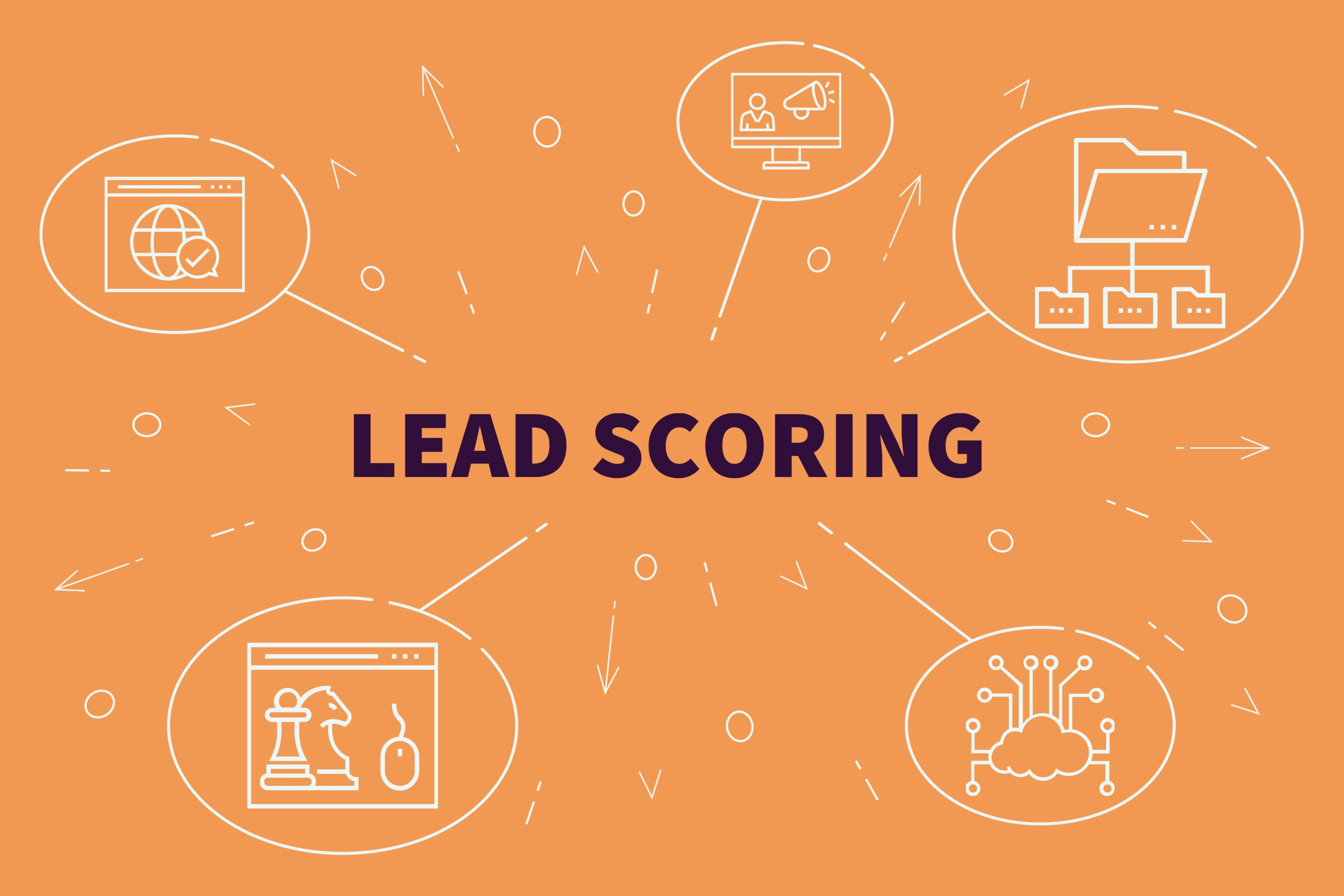
Lead Scoring For Law Firms: Convert Prospects to Clients

How Lead Scoring Works
Lead scoring is a methodology that ranks prospects against a scale that represents the perceived value each lead represents to the organization. The scoring scale usually ranges from 1 to 100. In general, leads with the highest scores are considered to be “sales-ready,” and sent to a member of your staff who will take care of the closing and bring them on board as a new client. Those with lower scores are usually left to be handled by marketing, who will continue to nurture the relationship. With a properly designed lead scoring system in place, it becomes easier to prioritize your prospects, make more efficient use of staff and resources, and ultimately, convert more clients. This systematic approach enables firms to identify the most promising leads and tailor their sales and marketing strategies accordingly.
The Mechanics of Lead Scoring
At its core, lead scoring is about translating lead details into quantifiable data that can inform action. The process typically involves the following steps:
- Define Your Ideal Client Profile (ICP): Before assigning numbers, it’s imperative to identify the traits and behaviors that your best clients share. These will form the basis of your lead scoring system.
- Weigh the Importance of Factors: Not all factors are created equal. Consider what behaviors or characteristics are particularly indicative of a strong prospect for your firm.
- Implementation and Continuous Refinement: Machinery behind the scenes automates the addition of points to a lead’s score as they engage with your firm. Regular review ensures your scoring system remains finely tuned to your firm’s evolving needs.
Scoring Mechanics
A lead scoring system often combines numerical scales with grading systems to present a multidimensional view of each prospect. These scores are integrated with your customer relationship management (CRM) tools, allowing for real-time insight into a lead’s status.
The Benefits of Implementing Lead Scoring in Law Firms
Adopting lead scoring can be a game-changer for law firms by streamlining client acquisition efforts and ensuring a higher return on investment. The benefits are multifold:
Enhanced Staff Efficiency
With a ranked list of leads, your team can focus their efforts on those that are most promising. This approach ensures that effort and time are dedicated to prospects that have the highest likelihood of conversion, improving the efficiency of your staff’s operations.
Resource Allocation
By directing resources toward prospects with high lead scores, you can ensure that your marketing and sales efforts are productive. You’ll avoid spending time and money on leads that are less likely to convert, resulting in a more efficient and cost-effective client acquisition process.
Improved Client Quality
A sophisticated lead scoring approach helps to attract leads that match your firm’s ideal client profile. These high-quality leads tend to generate a higher lifetime value, as they are more likely to become satisfied, long-term clients.
Measurable Return on Investment
Lead scoring provides measurable results that can inform your future marketing and sales strategies, enabling you to calculate the return on your client acquisition investments more accurately.
Implementing a Lead Scoring System in Your Law Firm
To take advantage of the benefits of lead scoring, law firms must approach its implementation strategically and systematically. Here’s how to get started:
1. Define Scoring Criteria
Work with stakeholders to define the criteria that are most relevant to your firm’s unique sales process and ideal client profile. This can involve a blend of demographic, firmographic, and behavioral factors. Most factors used to generate lead scores can be broken down into one of two categories: implicit or explicit factors.
- Explicit scoring, sometimes referred to as demographic scoring, is derived from factual information that you have gathered about your prospects. This could be information they’ve given you directly, through a form on your website for example, or information you’ve obtained from other sources like a geolocation database or public social media information.
- Implicit scoring, also known as behavioral scoring, helps to rank prospects based on what prospects do, either on your website or through other channels such as social media. By looking at actions like subscribing to a newsletter, downloading PDF documents, or asking questions on Twitter/X, you can get a better idea of what someone is really looking to get out of their relationship with your law firm.
- You might also want to use negative scoring, which deducts points based on factors that make a lead more unfavorable. Unsubscribing from a newsletter or being located in another city might be valid reasons to take some points away from a prospect’s score.
2. Leverage Technology
Use CRM tools and marketing automation platforms that offer lead-scoring capabilities to efficiently manage the scoring process and integrate it into your existing sales and marketing workflows.
3. Implement a Continuous Feedback Loop
Set up a system to regularly review and adjust your lead scoring model based on the performance and feedback from your sales and marketing teams. Lead scoring is not a static process and should evolve with your firm’s growth and changing market conditions.
4. Integrate Sales and Marketing Efforts
For lead scoring to be truly effective, your sales and marketing teams must be aligned. Encourage communication and collaboration between the two departments to ensure that the scoring system reflects the goals and strategies of both areas.
Takeaway
In a landscape where client acquisition can make or break a law firm’s success, lead scoring stands out as a beacon of efficiency and strategic foresight. By adopting this data-driven approach, law firms can unlock the full potential of their marketing and sales efforts, focusing on building lasting client relationships rather than spinning wheels on unfruitful leads. It’s a future-forward strategy that promises not only to convert prospects into clients but also to cement a firm’s position at the forefront of the legal marketplace. Let us help you determine what lead-generation methods work best for law firms like yours. Contact us today to learn more about how we can help you generate more leads.
Are you ready to get started generating new, qualified leads?
Contact us to get started and let us help you energize your digital marketing and business development efforts.
Contact Us

